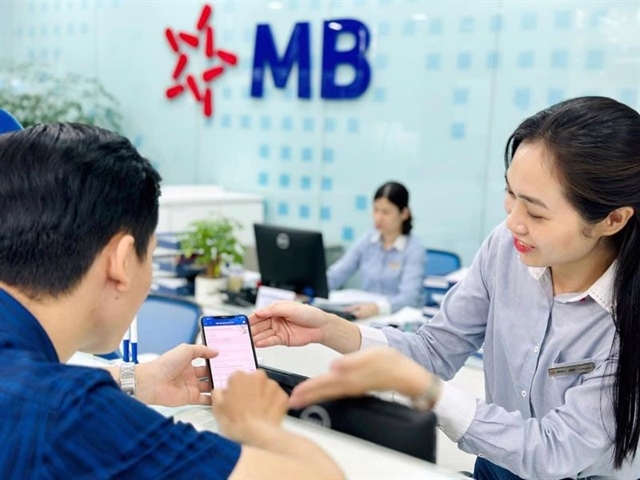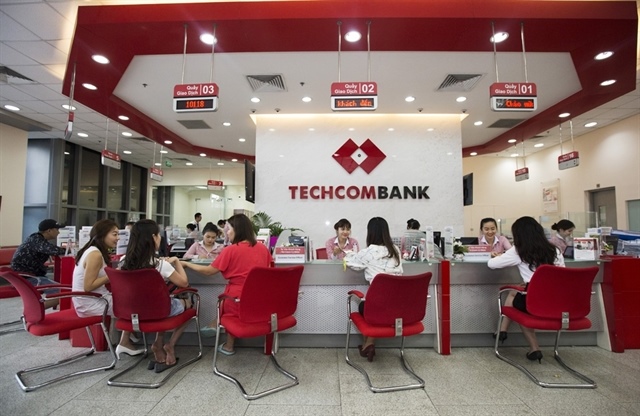HSBC puts Vietnam insurance business up for sale: sources
HSBC puts Vietnam insurance business up for sale: sources
HSBC Holdings has put its Vietnam insurance business on the block, sources said, in a deal that could fetch about $400 million for Europe's biggest bank as it pushes to exit non-core operations globally.

HSBC is seeking buyers for its 18 percent stake in government-controlled Baoviet Holdings, the country's top insurer, and is in talks with Japan's Sumitomo Life for a potential deal, the sources, who had direct knowledge of the matter, told Reuters.
The stake has a market value of $250 million, but HSBC is expecting a hefty premium due to Baoviet's market position and the potential to raise the ownership level at a later stage, one of the sources added.
Unlisted Sumitomo Life is among Japan's four biggest life insurance companies. More bidders could emerge, the sources said, though the names of other potential suitors were not immediately known.
"A few suitors looked at it, though the minority stake makes it less attractive to some," one of the sources said.
HSBC and Sumitomo Life declined to comment.
HSBC has been pulling back from unprofitable markets and businesses as part of a three-year recovery plan. It has already sold 28 businesses, taken 15,000 staff off its payroll, and released about $55 billion in risk-weighted assets under the plan.
The planned exit from Vietnam comes four months after it sold its global general insurance business to AXA SA and Australia's QBE Insurance Group Ltd for $914 million.
Across Asia, HSBC owns and operates insurance businesses in India, Taiwan, Malaysia, South Korea, China, Singapore and Hong Kong, of which, Hong Kong is its biggest. It also owns a 16 percent stake in China's Ping An Insurance, valued at about $11 billion.
Vietnam buy
HSBC paid a total of $360 million to buy the 18 percent stake, which was acquired in two tranches in 2007 and 2009.
Under the deal struck in 2007, HSBC committed to hold its shares for a minimum period of five years during which it had the option to increase the stake to 25 percent.
Hanoi headquartered Baoviet had more than 5,200 employees, 30,000-plus consultants and more than 130 branches, according to a fact sheet dated March 2011 posted on its web site.
Vietnam's rapidly growing economy is attracting foreign insurers. In May, Canada's Sun Life Financial Inc formed a joint venture with Vietnam's PVI Holdings, allowing the Canadian insurer to sell insurance products.
Vietnam has 29 non-life insurers and 14 life insurers, according to an April report from insurance ratings agency A.M. Best. Total insurance revenue rose 21.6 percent to 37.5 trillion dong ($1.8 billion) in 2011, according to the report, which cited statistics from the Association of Vietnamese Insurers.
A combination of low insurance penetration -- in both the life and non-life insurance markets in Vietnam penetration is less than 1 percent, according to the A.M. Best report -- and a growing middle class could make it attractive to insurance companies forced to look outside of their home markets for growth.
Vietnam's real GDP grew by 5.9 percent in 2011, according to the International Monetary Fund. Its growth is forecast to ease a bit this year and then speed up again in 2013.
However, high inflation could hurt consumer spending and make it difficult for insurers to sell policies. Inflation in Vietnam, the highest in Asia last year, peaked at 23 percent in August, and the rate for all of 2011 was 18.58 percent, though it has moderated recently.
($1 = 20850.0000 Vietnam dong)
reuters
























